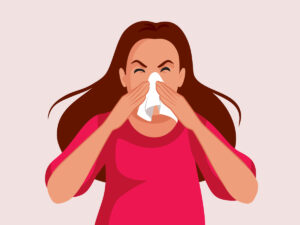Mouth-taping: Fad or fact?
A viral remedy – mouth taping is all the rage right now for celebrities and social media influencers. A practice touted to improve sleep, and reduce snoring it involves taping your mouth closed (usually with specialized tape) during sleep.
Scientists aren’t, however, all that convinced. Dr. Brian Rotenberg – a sleep surgeon – released a review in May 2025. Hoping to get to the bottom of the practice, with the goal of providing sound advice to his patients who were looking for direction, he looked at 86 existing scientific studies. Rotenberg then chose for 10 -in-depth reviews. The findings showed in 218 patients there are no strong scientific health benefits. Rather, some cases, studies suggested things could get worse for those with sleep disorders. In general, Rotenberg did state he doesn’t support a blanket statement on the issue either way and suggested caution.
On the other hand, a growing community of entrepreneurs and small businesses selling mouth tape aren’t convinced. One entrepreneur states feedback received from customers is too consistent, powerful and personal to ignore. More independent, rigorous research is needed to be done.
Source: Northumberland News

A four-day guide to friendship
While we often focus on diet and exercise in the hopes to improve our quality of life, there’s another measure that can have a lasting impact on our emotional and mental health—your friendships. Especially in times where many report increased loneliness and isolation—strong friendships could be just what the doctor ordered. According to experts, jump starting your social life can happen in as little as four days, with a little bit of intentionality.
Day One you’re expected to clarify your friendship goals and the expectations you might want to have of your friends.
Day Two brings a focus on sharing moments of happiness—this celebration of each other is a crucial feature of supportive friendships.
Day Three looks at connecting with new friends over shared interests, such as a hobby or a new activity, which can take the focus off of you in a social situation.
Day Four hones in on the importance of getting connected with nature and its ability to cultivate a relaxing environment where relationships thrive.
Source: BBC

The lifelong benefit of purpose
What’s the difference between staying sharp into your late 80s or being the victim of progressive mental decline in your sixties? A new study shows it could be something as simple as having, or not having a purpose.
Dr. Gabrielle Pfund from Auburn University studied 1,702 +65 year olds asking them about their mental sharpness and levels of well-being over a 10 year period. Her study focuses on the reciprocal relationship between cognitive function with three domains of well-being: (1) sense of purpose (the extent to which you have personally meaningful goals and activities), (2) eudaimonic well-being (a sense of autonomy, personal growth, purpose, and connection to others), and (3) life satisfaction (one’s sense of contentment with life).
So, what is a sense of purpose? Pfund believes it can be conceptualized as the extent to which one feels they have personally meaningful goals and directions guiding them through life. And, how does one find it? Pfund suggest looking at little moments of the day when you feel most purposeful? Look into the similarities between these experiences and reverse engineer your purpose from those small moments.
Source: Upworthy
Photos: CanStock












